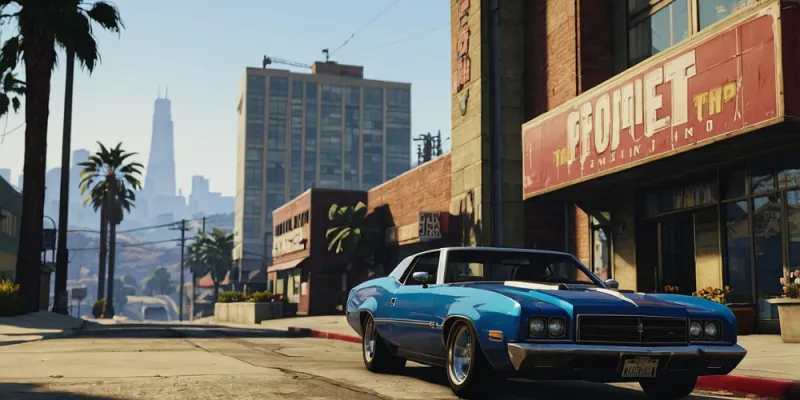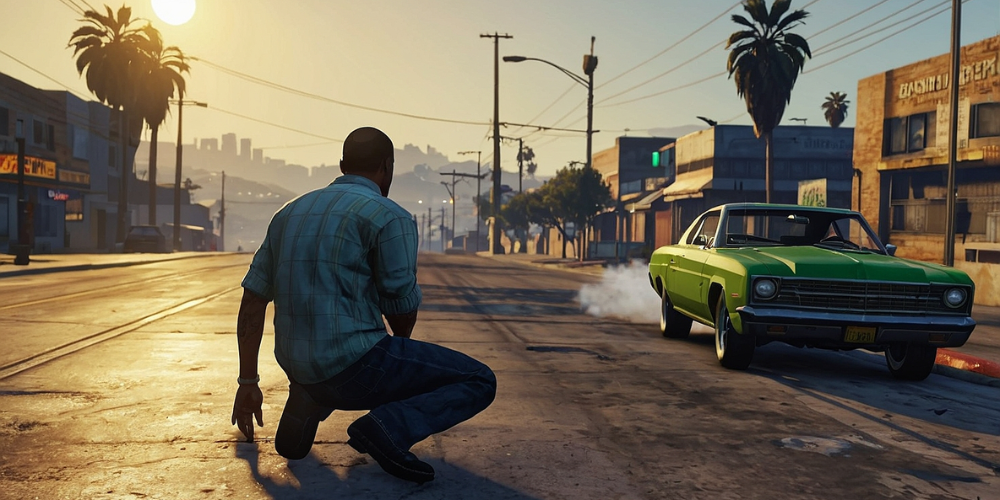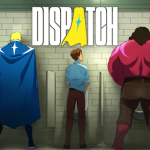Analyzing the Societal and Cultural Reflections in Grand Theft Auto V

As I immersed myself in the world of Grand Theft Auto V, I was immediately struck by how vividly the game reflects the societal and cultural complexities of contemporary life. The sprawling open world of Los Santos became a canvas where I could not only engage in action-packed escapades but also ponder deeper societal issues. Each street corner, every character I encountered, and the missions I undertook unveiled layers of societal commentary that resonated with my own understanding of modern culture.
The Satirical Lens on American Dream
One of the first reflections I noticed was how the game presents a satirical take on the American Dream. As I navigated through the lives of Michael, Franklin, and Trevor, I realized each character embodied different aspects of this dream—Michael represented the disillusioned upper class, Franklin the striving lower class, and Trevor the chaotic underbelly. Their struggles and desires forced me to confront the grim reality of ambition and success in a world where wealth often seems like a mirage.
Urban Decay and Gentrification
Walking through the neighborhoods of Los Santos, I couldn’t help but observe the stark contrasts between areas. The glaring juxtaposition of luxurious penthouses and impoverished districts mirrored real-life gentrification. In-game, I found myself drawn to the narratives intertwined with urban decay. As Franklin navigated his way through the struggles of his environment, I felt a poignant reminder of the shift that many cities undergo as wealthier residents displace long-standing communities.
Gender Representation and Stereotypes
The characters I encountered were not just diverse but underscored various societal stereotypes, particularly regarding gender roles. Female characters, while sometimes depicted in overly sexualized manners, also showcased strength and complexity. Characters like Denise and Molly gave me insights into the dynamics women face, making me reflect on real-world gender representations. The game forced me to consider how these portrayals shape societal views on women.
Race and Identity Politics
As a player, Franklin stood out to me, representing multifaceted experiences of race in contemporary America. His interactions illustrated broader themes of race relations, identity, and systemic discrimination. Through missions and dialogues, I felt the tension and challenges African Americans face—a narrative that prompted reflections on my own understanding and biases regarding race. It resonated powerfully, suggesting that race is not merely a backdrop; it’s integral to the identity and experience of each character.
The Role of Technology in Modern Society
The game constantly reminded me of how technology saturates our lives. Characters are always connected through cell phones, and social media is woven into the environment. This portrayal pushed me to consider the duality of technology as both an enabler and a hindrance in modern relationships and society. I often laughed at the absurdity of in-game social media but was simultaneously struck by its implications in the real world.
Crime as a Societal Norm
The underlying theme of crime in Grand Theft Auto V compelled me to think about how society often normalizes illicit activities. In Los Santos, crime was not merely an act but a means of survival for many, blurring the lines between right and wrong. I debated with myself whether the game glorified or critiqued criminal behavior, as I carried out heists and missions reflecting a corrupt societal framework.
Economic Disparities and Class Struggle
The stark economic divide in Los Santos served as a constant reminder of real-world class struggles. Witnessing the affluent lifestyle of characters like Michael juxtaposed against Franklin’s financial hardships propelled me to think about systemic inequalities. The game adeptly captured the frustration stemming from poverty, leading me to reflect on the cycle of inequality that traps many individuals in society.

Family Dynamics and Personal Relationships
Exploring the personal lives of my characters highlighted the complexities of family dynamics. Michael’s deteriorating relationship with his family mirrored real issues many face in balancing ambition with familial responsibilities. His journey made me contemplate how personal choices impact family ties, revealing a well-crafted narrative around the significance of relationships in navigating adversities.
Violence and Its Normalization
As I engaged in various violent acts within the game, I faced the paradox of enjoying the adrenaline rush while recognizing the desensitization to violence it breeds. The game’s hyper-violent scenarios left me pondering society’s relationship with violence—how it's often glamorized while simultaneously producing adverse effects on perceptions of morality. Each chaotic scene forced me to examine my own views on violence and its portrayal in media.
Corruption and Authority
A recurrent theme within Grand Theft Auto V is the scrutiny of authority and corruption, mirroring real-life sentiments towards law enforcement and government systems. My interactions with police characters and missions that revolved around corrupt officials prompted discussions in my mind about the trust and disillusionment some communities feel toward these institutions—an unsettling reflection of modern society.
Subcultures and Lifestyle Choices
Los Santos teems with various subcultures, from street racing to gang affiliations, reflecting the myriad lifestyle choices individuals often make. Observing how different groups interacted provided insights into the quest for identity within subcultures. I found myself intrigued by the motivations behind their choices, leading to a better understanding of societal pressures and the need for belonging that drives these affiliations.
The Impact of Media on Society
The game heavily criticizes media influence and consumer culture, portraying a society obsessed with fame and materialism. This constant battle for publicity and recognition echoed my feelings towards contemporary society’s fixation with superficial achievements. It was a satirical presentation that resonated deeply with the lifestyle many chase and the societal validation they seek.
Mental Health and Personal Crisis
The various characters in Grand Theft Auto V face mental health crises, a portrayal that urged me to reflect on mental health's significance in our lives. The struggles of characters like Trevor, who battled with his demons, served as a reminder that mental health is a pervasive issue often overlooked or stigmatized, despite its impact on personal and social dimensions.
Cultural References and Their Significance
Throughout my journey in Los Santos, I noted an abundance of cultural references—from music and television to fashion. Each element contributed to shaping the cultural landscape of the game and created a familiar tone that mirrored real-life experiences. Recognizing these references enhanced my experience, allowing me to draw connections between in-game culture and my own.
Community and Conflict Resolution
Despite the game's portrayal of crime and violence, I also found moments showcasing community and conflict resolution. Through missions that required cooperation among characters from differing backgrounds, I encountered themes about the power of unity in adversity. This aspect illuminated the potential for change and understanding within a society that often pits individuals against one another.
The Takeaway: Growing Through Gameplay
Engaging with Grand Theft Auto V transcended mere gaming; it provoked deep societal reflections through engaging narratives. As I explored the intricate layers of Los Santos, I found parallels to my own world, pushing me to confront discomforting truths about society and culture. Each moment spent within its digital confines became a critical lens reflecting my understanding of complex issues that define the world around us.
















